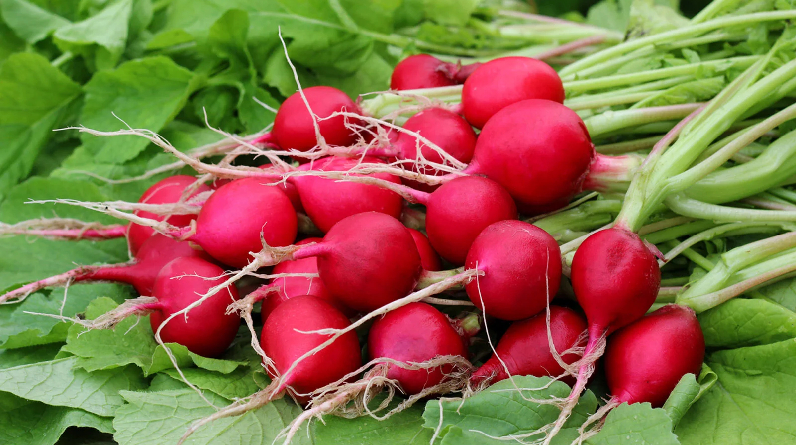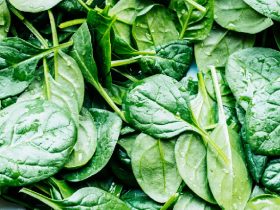Nutrient-dense and low in calories
Less than 20 calories, 4 grammes of carbohydrates (almost 2 grammes of fibre), nearly a gramme of protein, and 0 grammes of fat can be found in one cup of raw radishes. You can get about 30% of your daily value of vitamin C from a cup of sliced radishes, along with some B vitamins, potassium, calcium, iron, and magnesium.
Chemicals found in radishes are beneficial to human health.
Radishes, like other cruciferous vegetables like cabbage and mustard, have their own naturally occurring sulfur-containing substances. These compounds have been shown to inhibit cancer cell growth and spread, protect cells from carcinogens, and reduce inflammation.
The radishes’ compounds have shown antibacterial activity, too, even against the Helicobacter pylori bacteria that have been linked to stomach cancer and ulcers.
In some cases, antioxidants may aid in the fight against cancer.
Antioxidants have been shown to help prevent premature ageing and disease by lowering inflammation and shielding cells from harm.
See Also: The closing value of the FTSE 100 was a new high
Researchers noted that radishes, which have been used in folk medicine since ancient times, provide several types of antioxidants in a comprehensive review published in the journal Nutrients. These can be found in the sprouts, seeds, and leaves, in addition to the edible root, of the vegetable. Some forms of cancer, such as cervical, breast, prostate, colon, liver, and lung cancer, may be warding off by the natural compounds, according to scientists.
Possible Diabetes Protection
By 2060, the number of adults in the United States who have diabetes is expected to increase by nearly threefold, according to a study by Population Health Metrics. However, studies show a protective association between the vegetable and the disease, so increasing one’s consumption of radishes can help. Radish consumption and the risk of developing diabetes was the subject of a recent review article in the journal Nutrients. Juice, extract, and sprouts from the radish root were all included.
Researchers speculated that the protective effects stem from the vegetable’s ability to boost the body’s antioxidant defence mechanism and positively influence hormonally triggered glucose changes. Blood sugar levels appear to be lowered by radishes because they promote glucose uptake and inhibit glucose absorption in the intestine.

















Leave a Reply